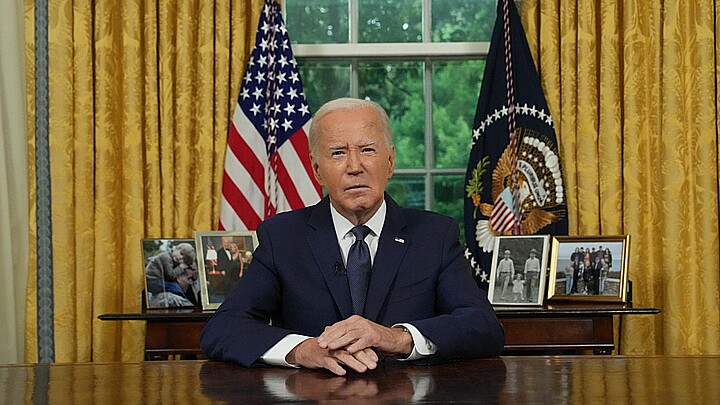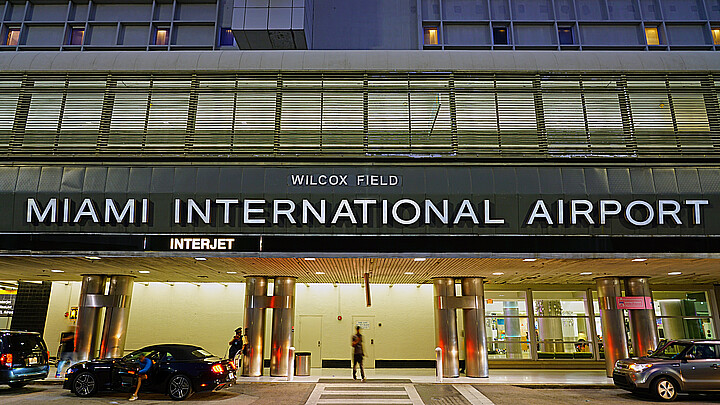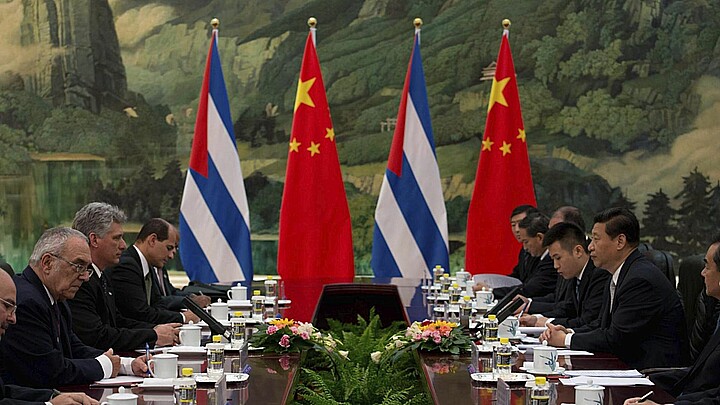Politics
Forty Democrats—four Latino reps—reject bill supporting U.S. solidarity with Cuban democracy activists
Democrats’ refusal to support Cuban activists comes amidst hundreds of detainees facing up to 27 years in prison
November 6, 2021 12:36pm
Updated: November 8, 2021 7:21pm
Forty House Democrats rejected a resolution on Wednesday to support the human rights of those who took the streets in Cuba on July 11th, in what amounted to the largest anti-government protest on the island in six decades.
Apart from the 382 legislators that approved the bill, 40 legislators rejected the initiative, among them four Democratic Hispanic representatives, Alexandria Ocasio Cortez (NY), Jesús “Chuy” García (IL), and Raúl Grijalva (AZ) and Nydia M. Velazquez (NY). Other members of the House to reject the bill were Ilhan Omar, Rashida Tlaib, Ayanna Pressley and Pramila Jayapal, known for their far-left positions, according to a list shared by Rep. Mario Diaz-Balart on Twitter.
Take a good look at those standing on the wrong side of history.
— Mario Diaz-Balart (@MarioDB) November 3, 2021
These Members voted against a bipartisan resolution condemning the #Cuban tyranny's oppression & vowing solidarity with the brave Cuban people demanding freedom. This is a matter of basic human rights & democracy. pic.twitter.com/HzDI3bYaYn
The legislation, which was introduced by Florida Democrat Debbie Wasserman-Schultz expresses Washington's “solidarity” with the Cuban people who took to the streets throughout the country on July 11, 2021, and with those who plan to peacefully demonstrate on November 15, 2021. Rep. Díaz-Balart, who represents the largest concentration of Cuban exiles, supported the bill.
The FL Democratic Delegation in Congress stood in solidarity with the Cuban Freedom Movement. @RepDWStweet led the charge, vowing solidarity with Cuban citizens demanding freedom and condemning the communist regime. https://t.co/Lj5D11p55U
— Florida Democrats (@FlaDems) November 4, 2021
The legislation defends the rights of Cubans’ freedom of expression and “condemns the Cuban regime’s violent repression of peaceful protesters and journalists.” Among those currently being unlawfully detained in prison is ADN Cuba journalist Esteban Rodríguez who has been incarcerated since April 30th. Rodriguez recently drew attention after participating in a hunger and thirst strike.
Some demonstrators being held for the July 11th protest are facing stringent prison sentences up to 27 years while some are facing 10 years for merely tearing a photo of Fidel Castro.
The resolution, rejected by the “squad” and progressive Democrats, condemns the Cuban government’s “acts of repression” and calls for the “immediate release” of those who were “arbitrarily” detained during the protests.
It also calls on members of the Cuban Revolutionary Armed Forces, the Cuban Ministry of the Interior, and Cuba’s National Revolutionary Police Force not to “arrest or detain peaceful protesters, provide due process to all individuals, and immediately release all political prisoners and arbitrarily detained individuals still in their custody.”
Diaz-Balart said on Twitter the resolution is, “a matter of basic human rights and democracy,” and lashed out against those who voted against it, saying they “are on the wrong side of history.”
Thousands of Cubans spontaneously took to the streets in July to demand freedom and political change in a series of highly energized protests that resulted in one death, hundreds of arrests and prison sentences.
On November 15, some activists who have evaded detention called for a peaceful march, but the Government denied permission to hold that protest, threatening the organizers with criminal charges and prosecution if they take the streets to advocate for the hundreds of Cuban political prisoners being held.
Prisoners Defenders, a Madrid-based NGO, reported that as of October 2021, the Cuban regime is still holding a total of 591 political prisoners, 370 of those cases directly related to the July 11, 2021 demonstrations in Cuba, a figure still less than 25% of the total generated by the repressive wave, “since it is completely impossible to know the cases among the population,” they added.
On November 4, Vladimir Turró Páez, a journalist with independent media, Cubanet used social media to announce he had been attacked in Havana by a regime agent disguised as a civilian.
"They hit me in one eye and then said that this was just a preview of what could happen to me on #15N if I went out on the street to do my job as a reporter," he wrote on Twitter.
In Cuba, the right to strike and demonstrate is prohibited unless sponsored by the government. However, most of those demonstrations are led by pro-regime ‘Committees in Defense of the Revolution’ (CDR) whose main aim is to harass pro-democracy civil society activists or rally support for government officials. Had the anti-regime November 15 march been authorized, it would have set a historic precedent.
The U.S. government has warned that it is considering additional sanctions against the regime if the “fundamental rights” of the Cuban people are “violated” or if the organizers of the November march are prosecuted.











